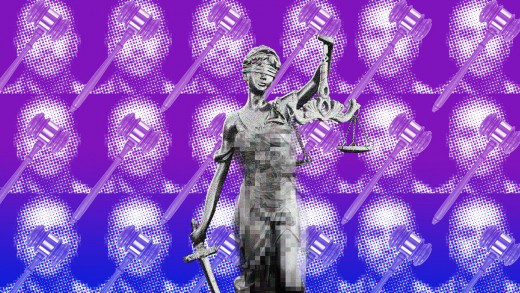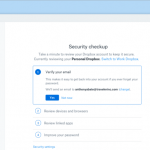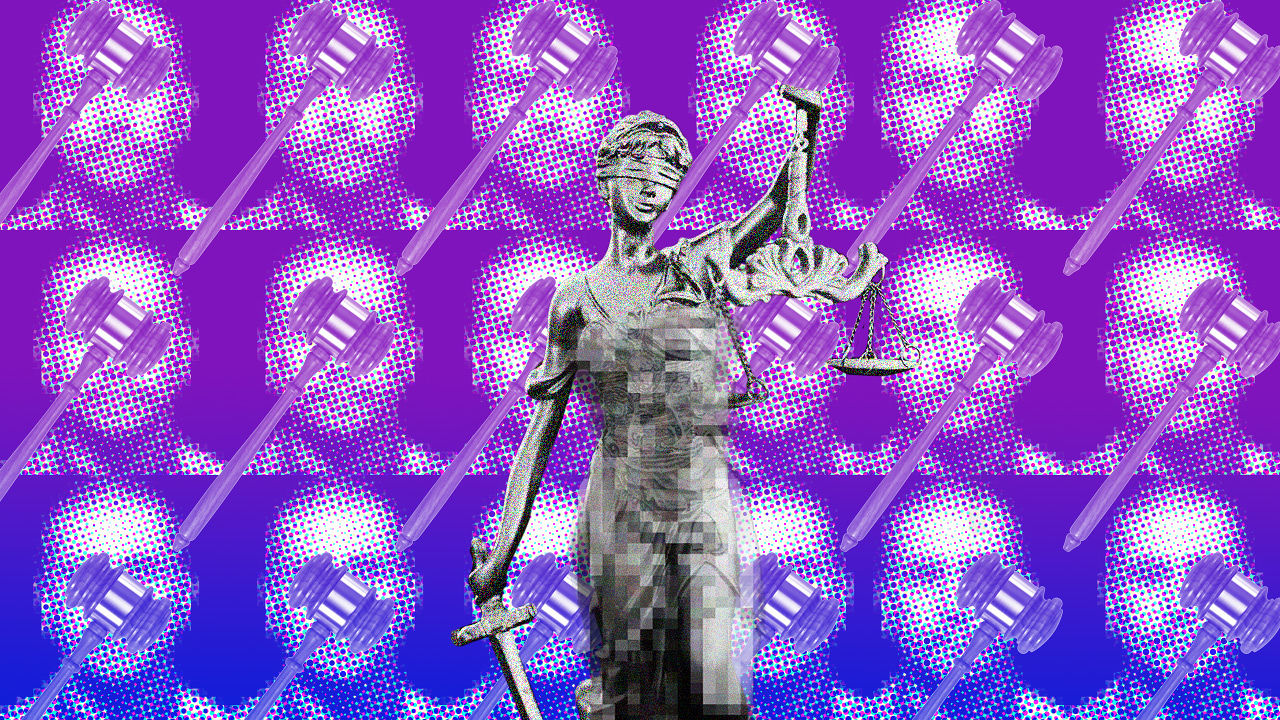Today in Law Tabs: What Was Privacy?
An Elf on every shelf.
Welcome to our first Topical Tabs Friday! Inaugurating the series is my favorite writer on technology and copyright law, the existence of whom is literally the only reason I even have a favorite writer on technology and copyright law, Sarah Jeong.
A big net neutrality case is being argued in court today! Net neutrality is the most tedious legal issue that most substantively affects the future of our most vital form of communication. So good luck with that, FCC, and viva la Internet Freedom. If you’d like to know more about net neutrality, do a ton of meth to stay awake and then start googling.
But first: join me now, friends, on a scenic tour of the highways and the ol’ backroads of American internet law.
In Florida: George “Wait, Seriously, That George Zimmerman?” Zimmerman is enjoying our Internet Freedoms to the best of his ability, by tweeting revenge porn of his ex. But never fear, Florida is one of those prescient states that passed a revenge porn law! No wait, never mind, revenge porn laws typically only cover actual nudity (not just heavy boobage) because otherwise we might be creeping into unconstitutional territory.
And in California: “King of revenge porn” and professional life-ruiner Hunter Moore is finally going to prison. Moore ran the revenge porn site IsAnyoneUp.com, which solicited user submissions of ex-lovers’ nude photos. But it turned out the appetite for consuming humiliation was greater than the appetite to inflict it, and Moore ended up paying hacker Charlie Evens to break into Gmail accounts and steal nude photos.
This, it turns out, is illegal! But not quite as illegal as his countless victims thought it would be, because Moore is going to prison for only two and a half years. Also he’s paying $145.70 in restitution to a single victim—because $145.70 is the price that he paid Evens for victim L.B.’s nudes.
By The Time We Get To Arizona: Craig Brittain and Chance Trahan, who ran IsAnybodyDown.com, a revenge porn site closely linked to a nude-photo-takedown service aka Obvious Extortion Racket, are now operating the world’s first Uber competitor that hates SJWs. The Federal Trade Commission had Brittain and Trahan pinned and wriggling like pallid little worm-creatures back in February, but ended up giving them little more than a slap on the wrist. For great justice!
Oklahoma Where The Drone Comes Sweepin’ Down The Plain: A high-tech peeping tom and “longtime harasser of sex workers” was caught flying a drone to film people having sex. No wait, sorry, the sex worker and her client were the ones who were caught, and are now facing criminal charges, and Drone Dude Did Nothing Wrong. Privacy! Does anyone have it anymore?
The answer is no, literally no one has privacy anymore. Even children’s toys are snooping on them, recording 6.3 million children, making pictures of them available to hackers and god knows who else. But hey, you know what? Apparently surveilling children is pretty passé nowadays. It’s like Elf on a Shelf, but instead of an Elf it’s every toy, instead of a shelf it’s everywhere, and instead of a parent, it’s every rando on the internet.
And Then We’re Going To Washington D.C.! Where lawmakers grapple with reforming an email privacy law that hasn’t been updated since the 1980s. That wasn’t a typo. I really meant 1980s.
If all these tabs are starting to make you feel like Our Laws Might Not Be Quite Up to Date—well, yes, and no. Yes, American privacy law is a joke. But where do we apply the fixes? Note that Hunter Moore was charged under the Computer Fraud & Abuse Act, which is not exactly a milquetoast, ineffectual law. It’s the kind of charge that manages to stick even when nothing else will. (By the way, the CFAA conviction in the Cannibal Cop case is finally going away—the very last bit of the case to drop away after Gilberto Valle was arrested in 2012 for fantasizing about eating women).
Does anyone have any hope that our legislative branch is going to write real privacy laws? They can’t even pass a law in response to 20 little children being brutally murdered, let alone children being spied on through their toys. No wonder we turn to corporations and platforms to enforce a quasi-law when the actual law has failed us all.
Maybe the courts won’t do anything to George Zimmerman after he posted revenge porn of his ex-girlfriend. In fact, I submit to you that it may not even be the worst thing he’s ever gotten away with??? But at the very least, Twitter suspended his account, right?
That’s the great tension of the upcoming decade in Internet law: how the courts should treat intermediaries like Twitter, Facebook, Google, or even Internet service providers, now that the intermediaries are beginning to supplant the courts entirely.
And that’s the subtext of the fights around net neutrality, revenge porn, classified ads site Backpage.com, and copyright cases like BMG v. Cox. We look to intermediary services to preserve our freedom and our privacy, because we have no other choice.
After all, we live in an age where a reckless disregard for privacy can be found not only in the big gaping hole in our laws, but woven into the very fabric of the technology industry.
Awful, right? Let us all take a moment, as members of the media, to feel very self-righteous about it.
INSANE live shot on @MSNBC flipping through the shooters’ photo albums from inside his apartment
— Dorey Scheimer (@DoreyScheimer) December 4, 2015
Andrea Mitchell can be heard pleading with reporter inside apt: “don’t show photos of children” in family album https://t.co/oC1kZae1ta
— igorvolsky (@igorvolsky) December 4, 2015
No Tabs would be really complete without an intern, and in the world of law, our interns are law students. Today’s special edition intern is Kendra Albert, a third year at A Law School Near Boston1. Lay some smarts on us, Kendra:
There’s nothing we law students love more than old white men fighting and snarky judicial opinions! This week we got a healthy dose of both from famous legal scholar and hardest-working man in the law Judge Richard Posner, who delivered the smackdown on both Justice Antonin Scalia and Sheriff Thomas J. Dart of Cook County, Illinois.
Justice Scalia’s homophobia is old news, almost as old as his views on ladies swearing, so let’s move onto the sheriff:
This summer, Dart sent official letters to Mastercard and Visa, pressuring them to stop providing financial services to Backpage because it offers ads for adult services. He can’t sue Backpage itself, so instead, he goes for its payment processors. Dart’s actions are part of a long history of using the financial system to marginalize female entrepreneurs in the sex business. Judge Posner rightly tells Dart where to get off.
Even better for tittering law students, this opinion makes it clear that Judge Posner or one of his clerks had to go look at the Wikipedia page for dominatrix, on the day after Thanksgiving.
As Parker Higgins pointed out, this is hardly the first time Judge Posner has done a little bit of “holiday research” on porn. The last time, he was investigating allegedly infringing porn videos on the Fourth of July! In the words of distinguished law professor Eric Goldman:
Your honor, like the American public you serve, you deserve to enjoy the holiday! If the outcome will turn on the current percentage of infringing activity—which it shouldn’t—that question should be remanded to the district court for further fact-finding, not by having a septuagenarian surfing for gay erotica (on court computers?) on a national holiday.
Take a day off, Judge Posner! Your cat misses you!
Well, that’s it, folks! Have a good weekend, and try not to be too sad about everything being bad and broken. Rusty will be back with Tabs on Monday.
~I’m countin’ down to the tab deservin’, fittin’ for a king~
Thanks Sarah! You can read more by Sarah Jeong on Motherboard or pick up her ebook, “The Internet of Garbage.” Today in Tabs will be back next week on Fast Company and in your email.
-
No, not Tufts. ↩
[Source photos: izzet ugutmen, StudioSmart via Shutterstock, Zimmerman via Wikimedia Commons]
Fast Company , Read Full Story
(42)















